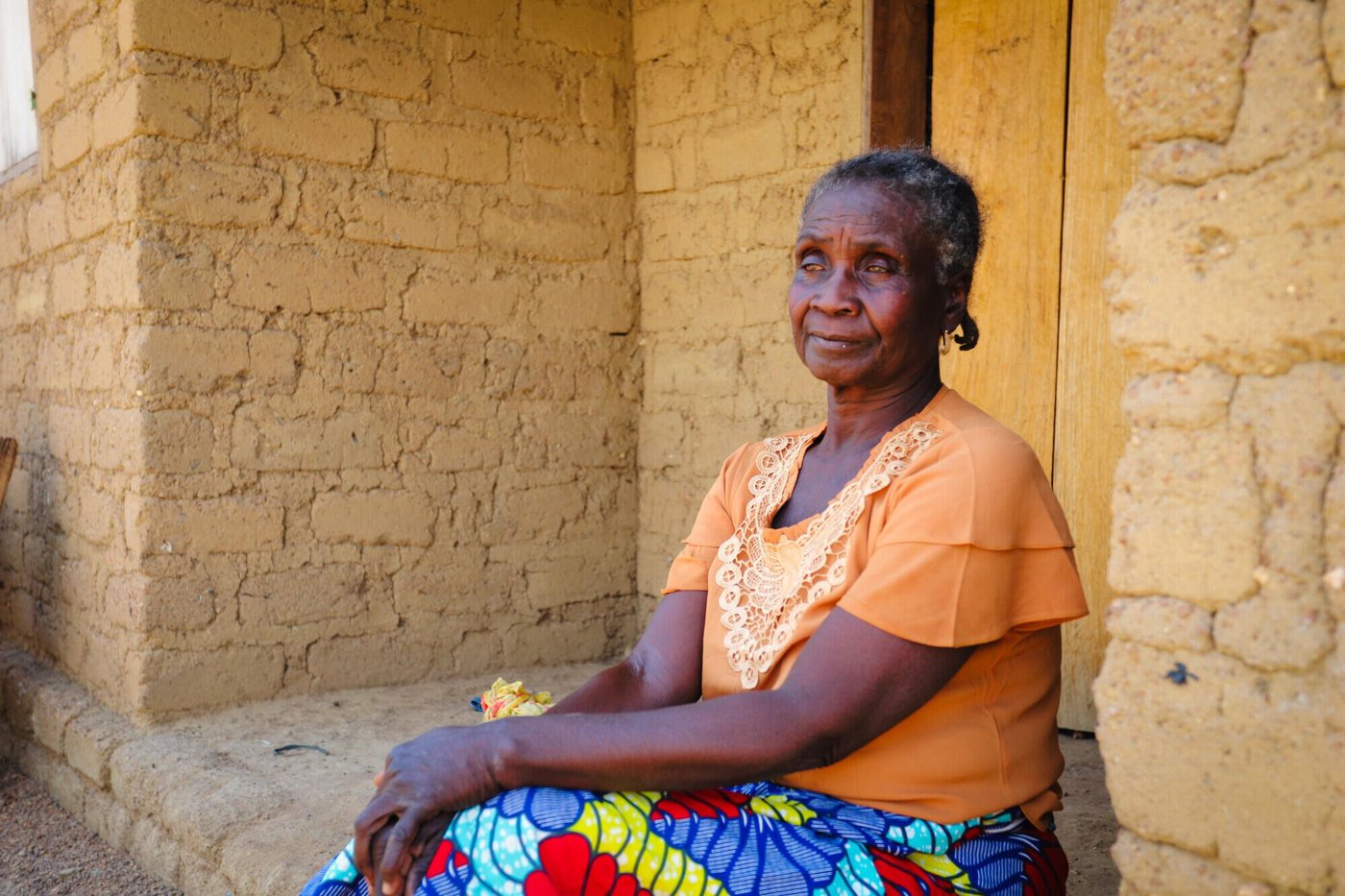Madeleine had already lost her husband a few years earlier and could no longer cope with the escalating violence in her village. She decided to flee, heading for an unknown destination with her grandchildren.
“I arrived in Bocaranga with nothing, only the clothes I was wearing and my grandchildren in my arms. The oldest was just eight. I didn't know what to do or where to go,” she recalls.
Danger of collapse
After several days sleeping rough, Madeleine was taken in by a kind-hearted person, who put her up for a while. Madeleine was a farmer in her youth and was hoping to find a small plot of land where she could grow crops and look after her family. But her situation was difficult.
“I can't say thank you enough to the man who took us in. He gave us a small room in an out-building and we managed there. It was a divine grace,” she relates. But as the years went by, the building fell into disrepair and was in danger of collapsing at any moment.
“I couldn't sleep, I was so afraid something would happen to the house. The weather was making us suffer and we weren't at peace. But life was too difficult to even think about making repairs. Even eating was rare. And I'm not even talking about school for the children,” she remembers.

Marthe, 68, was in a similar situation to Madeleine. Her house had been damaged during violent clashes, but due to lack of funds she was unable to carry out any renovations. A widow, she lives with her granddaughter in Bocaranga and works in the fields to earn a living. But daily life remains a struggle.
“We were left to our own devices here. Even at school, the child couldn't attend. The house was in ruins, and we didn't even have a front door,” she recalls.
With funding from the European Union, the Norwegian Refugee Council (NRC) provided Madeleine and Marthe with permanent shelters to protect them from the risks of displacement and enable them to live in dignity. They were grateful to receive assistance but believe that many others in the area are in desperate need of support.

“Now I have a place I can call home. I can sleep in peace,” says Madeleine. “But sometimes I think of the others who continue to wait and hope, and I pray that God will help them too.”
Madeleine and Marthe are among 100 displaced families we supported through the provision of permanent shelters in Bocaranga. They have also each received a property certificate, giving them legal ownership of their property in the event of a threat or land dispute.
Shelter in displacement
In 2024, 524,807 people in CAR needed humanitarian shelter support. This included 126,427 displaced people living in host communities, 56,150 displaced people living in sites, 271,835 people from the host population in areas where displaced people were present, and 70,395 returnees.
This situation is partly explained by new displacements caused by recurrent shocks during the year. Shelter is among the most urgent needs of the newly displaced, the host populations who accommodate them, and those displaced people who decide to return to their places of origin.
Indeed, humanitarian shocks leading to displacement and return are almost always accompanied by destruction or loss of shelter, further weakening communities already struggling with the fragile socio-economic context.

NRC’s response is designed to aid recovery. We offer an integrated approach, creating homes and building communities to protect people from the risks of displacement and enable them to live in dignity. In 2024, our shelter programme in CAR reached 8,929 people, providing them with a safe place to call “home”.
This project was implemented with support from the European Commission's Civil Protection and Humanitarian Aid Operations department (DG ECHO).
Sign up to our newsletter to read more stories from around the world.


